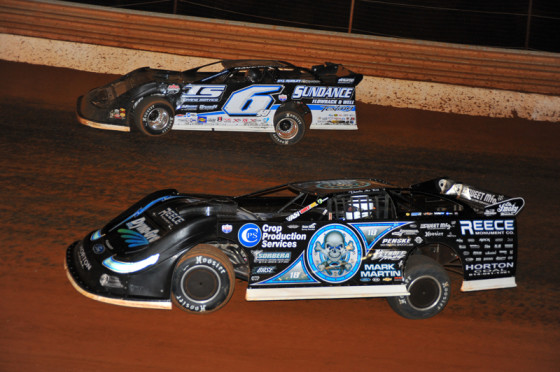Whenever there is a sanctioned race coming to just about any track located in the east Tennessee region or any other area of the country for that matter, I can’t help but notice that someone will go to the various message boards or take to social media to ask which drivers are expected to be racing on that particular night. Further, many of the touring series aid these discussions by posting on their websites or their own social media accounts the names of drivers they have received confirmation from to race in an upcoming event.
No doubt, the knowledge that a driver such as Scott Bloomquist, Jonathan Davenport, Jimmy Owens or Josh Richards(just to name a few) racing at a nearby track could be a determining factor as to whether some fans will make the effort to attend or not. But I have always wondered just how much of a role this knowledge actually plays.
Throughout the fall, I have taken to my own social media account to ask numerous highly unscientific poll questions regarding dirt racing. While the results may not be completely reliable, they do provide a bit of fodder for discussion as we make our way through this time period in which the actual on-track activity is slowing down.
One of the questions I asked was this- “If you find out that a certain driver is or isn’t coming to a particular race, does it affect your decision to attend?”
Of the 364 folks who responded on Twitter, a solid 67% answered that the revelation of a particular driver’s attendance or absence does not affect their decision to buy a ticket for the event. Conversely, 33% answered that the knowledge of a certain driver going to or avoiding an upcoming race would influence their own decision to attend.
While these numbers seem to indicate a landslide victory for the stalwart fans who support the sport rather than a particular personality, there could be reason for concern among those who host such events.
Consider the possibility that a promoter plans to stage a headline race that will pay $5,000-to-win along with multiple support class features. The promoter may figure that he/she needs 1,000 people to attend in the grandstands as well as whatever number of participants and spectators purchase pit passes for the event to be counted as a financial success. While the series sanctioning the event may have a number of regular stars who can be counted on to race, the news that a national star such as Bloomquist or Davenport competing on an off weekend for their regular series could add even more fans.
If the news of a Bloomquist(or other driver) entry could add the 33% of spectators mentioned from the poll above, that would mean an additional 300 people would come through the gates. Depending on the ticket price, such news could potentially add significant amounts of money to the collection.
Conversely, however, if were believed that a driver such as Bloomquist were attending but word comes out that he had decided to go elsewhere, that could reduce the promoter’s crowd by 300 fans. That’s a heavy hit to the gate receipts and could cause the track ownership to lose money. That, in turn, might reduce the likelihood that said promoter will attempt to run any more special events.
So while the fact that 67% of the respondents reported that they would attend a particular race no matter what drivers planned to compete, that 33% who may not show up could make the difference between profit and loss. Or in other words, it could make the difference between the track remaining open or going out of business.
All that said, it seems safe to say that the list of expected drivers for a race does make a difference in regard to fan attendance. And while I was surprised that the respondents saying the revelation of certain drivers racing or not racing on a particular night would affect their decision to attend was not even higher than 33%, it does seem to make a significant difference regarding the overall health of whatever track is hosting the race in question.






